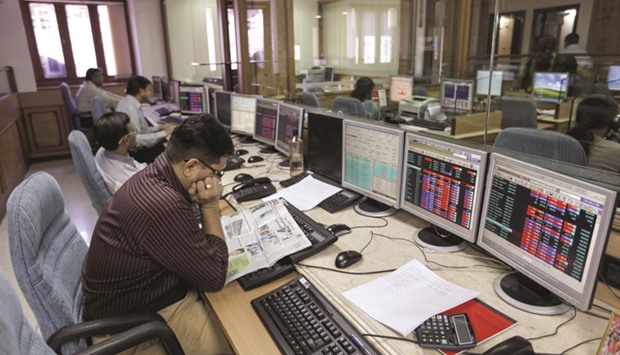The performance of Prime Minister Narendra Modi’s party in ongoing state elections will determine if the trickle of foreign money returning to Indian stocks turns into a gush, according to Citibank.
The five state polls held over February and March are the first test of popularity for Modi after his currency replacement programme in November dented India’s world-beating growth and prompted foreign investors to pull record amounts from the country’s equity markets. A setback for the Bharatiya Janata Party would be seen as a referendum on his leadership.
“The results will be viewed by them as a verdict on demonetisation, so the interest level on what happens in the assembly elections is quite high among foreign investors,” Abhinav Khanna, Mumbai-based managing director and head of equity for the US bank, said in an interview. “The inflow we’ve seen until now is not very strong. It is not the high-conviction buying we’ve seen in the past.”
Global funds have bought $374mn of Indian equities since February 1, according to data compiled by Bloomberg. They pulled $4bn from local shares between November and January in the wake of Modi’s move on November 8 to junk 86% of circulated currency.
A strong showing in the polls would help Modi improve the BJP’s position in the parliament’s upper house, where some of his reform efforts have stalled, and bolster his political strength before the 2019 general election. Such an outcome would be a boost to an economy that still boasts one of the world’s fastest growth rates, a stable currency and slowing inflation. The results of the five state polls will be announced on March 11.
“India is still a stronger country among its emerging-market peers,” said Khanna. “The stability of the currency, the downtrend in fiscal deficit target and inflation widely under control are factors that make foreigners positively disposed.” The bank has a year-end target of 30,000 for the S&P BSE Sensex.
The amount of inflows also hinges on March-quarter company results, which will be parsed by investors for signs of a rebound in demand.
“It will help if the fourth-quarter earnings substantiate the view that demonetisation didn’t lead to as much of a slowdown as was feared,” said Khanna. “If earnings are much better, it may lead to more flows.”
Net income at 46 of the top 100 companies that posted results for the three months ended December rose about 17 percent on average from a year earlier, marginally trailing Citibank’s estimate for 19% growth. Their performance suggests the impact of the cash ban has been less severe than anticipated.
Still, India isn’t immune to an external shock that causes investors to sour on emerging-market assets. Uncertainty over US President Donald Trump’s economic agenda, elections in France and swings in oil prices will determine global investors’ demand for riskier assets, according to Citibank.
For now, India watchers have their eyes on Uttar Pradesh, where polling began Saturday. A key electorate state of 200 million people sends more representatives to the parliament’s upper house than any other region. The BJP swept the state in the 2014 general election, winning 71 of the state’s 80 lower house seats.

Traders at the Bombay Stock Exchange. Global funds have bought $374mn of Indian equities since February 1, according to data compiled by Bloomberg. They pulled $4bn from local shares between November and January in the wake of Modi’s move on November 8 to junk 86% of circulated currency.


